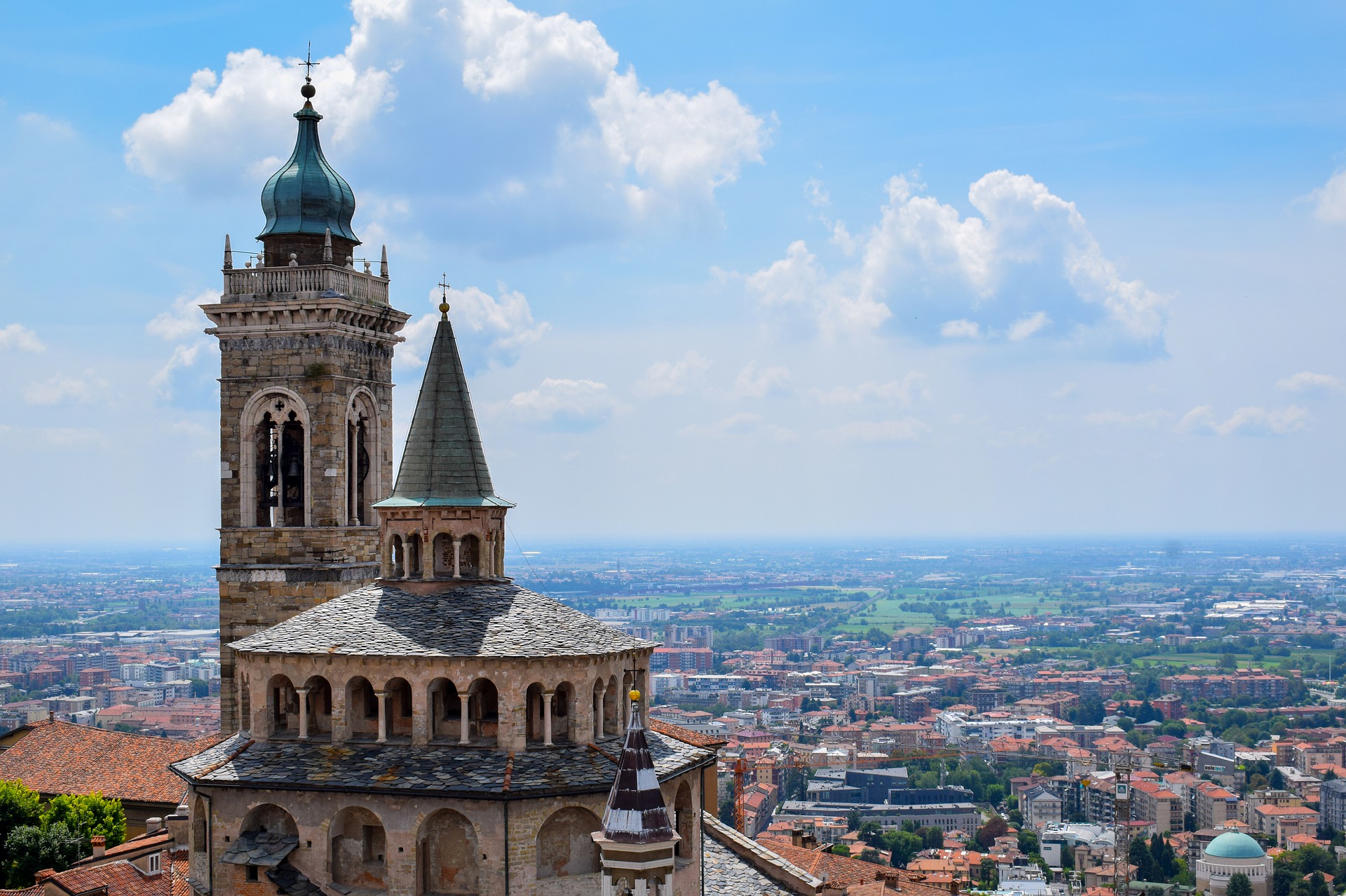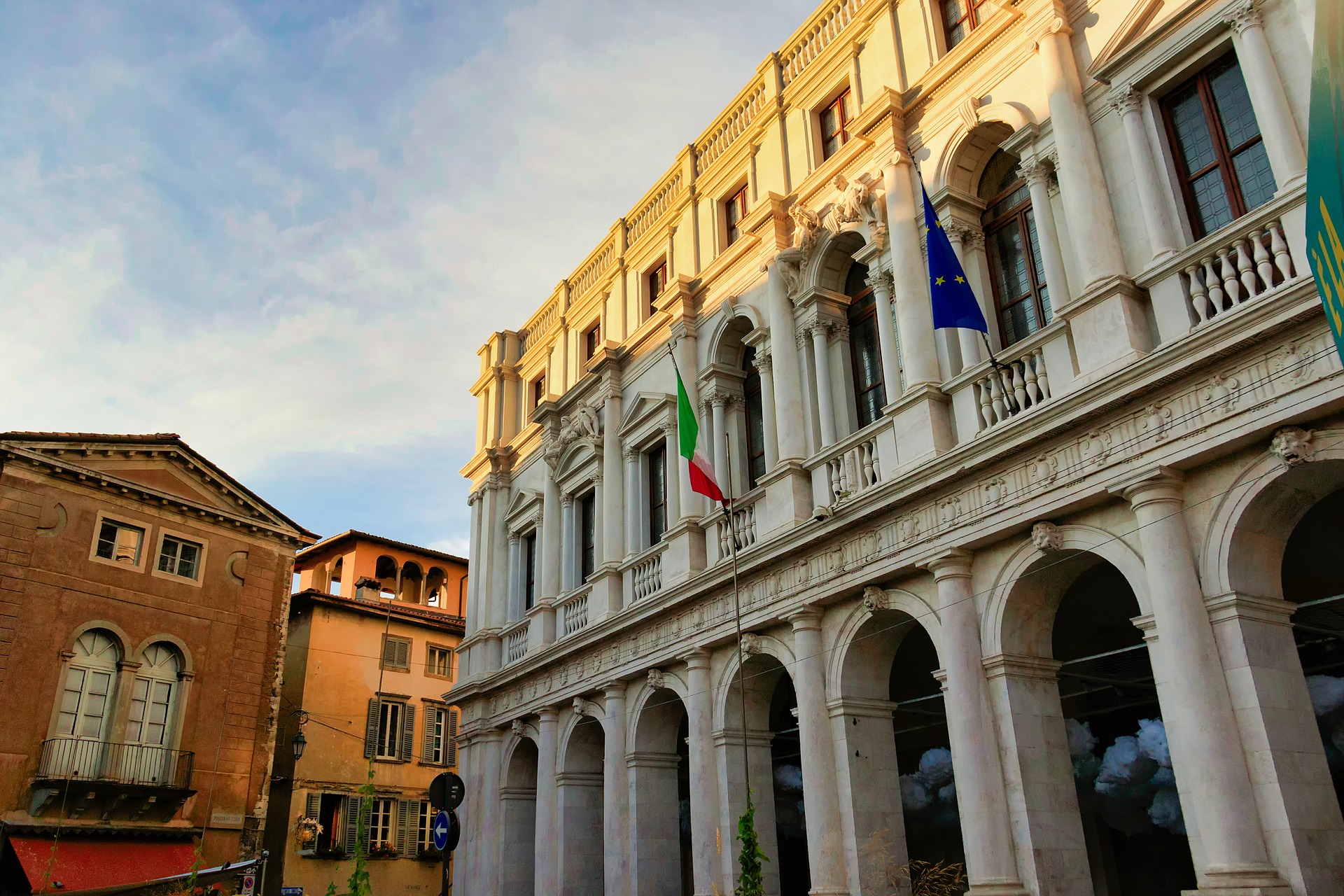Thessaloniki gets ready for its metro launch in November
The underground rapid transit lines have been under construction for almost two decades due to various project delays
 TheMayor.EU logo
TheMayor.EU logo Interview with Giorgio Gori, Mayor of Bergamo in Italy
Giorgio Gori was born on March 24, 1960 in Bergamo. He attended "Paolo Sarpi" high school. He studied architecture at the Milan Polytechnic, where he graduated with a thesis on urban planning. Journalist, television producer, founder of the television production company Magnolia and former director of TV “Canale 5” and “Italia 1”. Since December 2011 he has been a member of the Democratic Party of Bergamo. In April 2012 he created the InNOVA BERGAMO Association. Since 10 June 2014 Gori is Mayor of Bergamo.
 Panoramic view of Bergamo
Panoramic view of Bergamo
Mayor Gori, in recent years Bergamo has become increasingly attractive and famous. It is also your hometown, which is your favorite place in Bergamo?
One of the key points of the 5-year program was precisely to make our city known, not only in our country, but above all, at international level. Making Bergamo attractive, exploiting the potential of its airport, making known the great historical and artistic heritage of the city was one of the qualifying points of the mandate plan of our first Administration. It is also a way of sharing the beauty of this city with others, a way of channeling citizen pride so it can be enjoyed by as many people as possible. I am proud of my city and I believe it is one of the most beautiful towns in our country.
Which is my favorite place? I think that the area of the hills, which I always like to travel on foot and by bicycle when I have a little bit of time: I think it is a magical place.
You are mayor of Bergamo since 2014. Which completed projects do you consider as the most important?
We have worked a great deal in previous years to accelerate the city on many things. Among the main achievements of the last Administration I put the appointment as UNESCO World Heritage Site of the Mura di Bergamo Alta (Venetian Walls) but also +55% of tourist flows to the city, the counter-trend compared to the national birth rate that we recorded in the last 2 years, the climb to the rankings of the smartest cities in Italy (also thanks to a wi-fi system extended for 3 million km of public places), the unblocking of situations that had been stopped for years (such as the modernization of the Atalanta stadium, the reclamation of the former gasometer, the situation of the former Montelungo Barracks and several other abandoned areas), the increase of funds and services in the social sector and the construction of two new schools. These are just the first things that come to mind, we really did a lot and we want to do the same in the next 5 years, with particular attention to the issues of sustainability and mobility.
Among the biggest challenges in you work are the traffic and pollution. What measures is the municipality planning in this area?
Regarding this point we have very clear ideas. In fact, in recent months we have adopted the new Urban Plan of Sustainable Mobility and many indications on the strategies of the coming years are very clearly indicated: the first is the defense of the peripheral districts of the city from the daily invasion of cars, realizing parking lots in the peri-urban area and discouraging the use of private vehicles to reach the city center. We also want to invest in electric mobility and for this we have created 32 recharging stations and launched the first full electric public transport line in our country. By 2024 we aim to have only green buses in the city. But that's not all: we work to build the conditions for building Area B in the city, an area where only low-emission vehicles can enter, as it happens in many European cities.
In the same vein are also the objectives of urban regeneration and sustainable mobility. Is this going to be your main task over the next few years?
The objective that we have already set with the first Administration is to not consume free land and instead redevelop abandoned areas that have existed for long time in the city. We have launched a long series of projects to "patch up" the urban fabric, trying to constantly reduce the planned volumes and creating green areas where up until recently there were exclusively industrial buildings. In the coming years we will focus on two very ambitious projects, such as Chorus Life, an entire neighborhood designed to be technological and green model, constructed by Grupedil, located on the area south of the station, a space of 400 thousand square meters that will host the pole intermodal (railway station, tramline of the valleys, bus station, airport connection), attestation parking lots and a large green belt, capable of making the city center suture to the south of Bergamo. And then much more, always obviously with a coherent look and in harmony with the policies of disincentivizing of the private vehicle, the improvement of the quality of life in the suburbs and the need to offer housing at favorable prices for young and old.

Town Hall of Bergamo
What are some of the other good practices implemented by the municipality? How do you finance them?
The resources of Italian Municipalities have been greatly reduced in recent years, above all in consequence of the economic crisis, which has seen the Municipalities having to supply and produce a truly remarkable effort. In this scenario, Bergamo has always been a virtuous city for what concerns the management of its own accounts and budgets and therefore we are able to end every year by hitting the forecast financial targets. However, in order to implement the infrastructures and urban redevelopment projects, we have launched a strategy of public-private partnerships, thus leveraging private funds to pursue objectives of clear public interest. For example, the new ice rink, built with Italimmobiliare funds, the stadium renovated after the sale to the Atalanta B.C., the former Montelungo Barracks that will become a university thanks to the commitment of the University of Bergamo. And there are many other examples like this.
How would you evaluate the necessity of a portal that brings together the best practices of European municipalities and aims to keep the citizens informed about the latest developments in local policies, such as TheMayor.eu? How can our platform be useful to you and the citizens of Bergamo?
I think it can be very useful. One of the problems facing the European Union in this historical phase is also the misinformation about the activities and good practices of our continent. I believe that a tool like a unified platform can contribute to building a sense and a common look at contemporaneity. Not only: there are also many things to learn, for an Administrator, because the biggest part of the European cities is called upon to respond to similar or common challenges and problems. I mean the reduction of emissions, the discouragement of the use of private vehicles, the need to rebuild a welfare system that is able to cope with the progressive aging of the population, good practices to better tackle immigration and build integration and much more: from this point of view, this platform can be very useful indeed.
How would you like the city to look like at the end of your mandate in 2024?
The objective is to conclude the mandate in a Bergamo which is attractive on a continental scale, with an increasingly growing University, an increasingly green mobility and a smart city and that has been able to grasp the potential that technology offers in this historical period. But above all a city that has not lost the ties between people, which, indeed, has strengthened them, in condominiums, neighborhoods, between different generations, thanks to a proximity welfare built with the third sector and the small realities of the territory, an efficient educational system and an Administration that has been able to take care of the weakest sections of the population, listening to their security and social inclusion needs, trying to promote investments and building a climate of trust towards the future. I would like to leave my role as Mayor with a city that has faith in the future.
Find out more about Bergamo here

The underground rapid transit lines have been under construction for almost two decades due to various project delays

Now you can get your wine in Talence by paying directly in Bitcoin

That’s because the state has to spend money on updating the railway infrastructure rather than subsidizing the cost of the popular pass

Rethinking renewable energy sources for the urban landscape

The examples, compiled by Beyond Fossil Fuels, can inform and inspire communities and entrepreneurs that still feel trepidation at the prospect of energy transition

Now you can get your wine in Talence by paying directly in Bitcoin

The 10th European Conference on Sustainable Cities and Towns (ESCT) sets the stage for stronger cooperation between the EU, national and local level to fast track Europe's transition to climate neutrality.

At least, that’s the promise made by the mayor of Paris, Anne Hidalgo

The underground rapid transit lines have been under construction for almost two decades due to various project delays

At least, that’s the promise made by the mayor of Paris, Anne Hidalgo

Hostal de Pinós is located in the geographical centre of the autonomous region

Despite its church-y name, the district has long been known as the hangout spot for the artsy crowds

Urban dwellers across the EU are having a say in making their surroundings friendlier to people and the environment.

Forests in the EU can help green the European construction industry and bolster a continent-wide push for architectural improvements.

Apply by 10 November and do your part for the transformation of European public spaces

An interview with the Mayor of a Polish city that seeks to reinvent itself

An interview with the newly elected ICLEI President and Mayor of Malmö

A conversation with the Mayor of Lisbon about the spirit and dimensions of innovation present in the Portuguese capital














